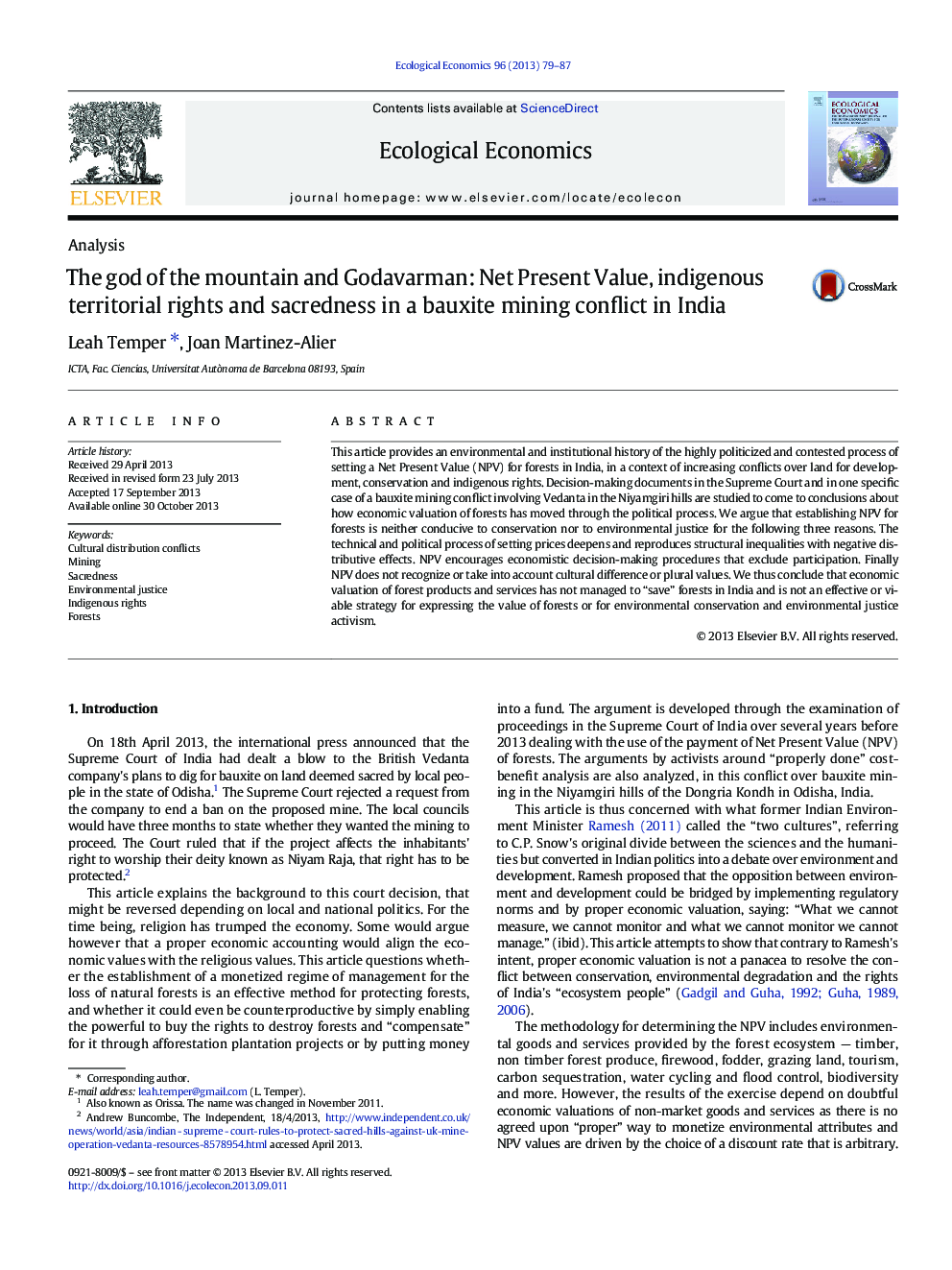| Article ID | Journal | Published Year | Pages | File Type |
|---|---|---|---|---|
| 5049915 | Ecological Economics | 2013 | 9 Pages |
â¢We provide a historical overview of the pricing of forests in India.â¢We analyze a conflict on bauxite mining in Odisha, India.â¢We emphasize the incommensurability of values as a foundation of ecological economics.â¢We show that setting prices for forest diversion can exacerbate inequality.â¢We analyze not only ecological distribution conflicts but also cultural distribution conflicts.
This article provides an environmental and institutional history of the highly politicized and contested process of setting a Net Present Value (NPV) for forests in India, in a context of increasing conflicts over land for development, conservation and indigenous rights. Decision-making documents in the Supreme Court and in one specific case of a bauxite mining conflict involving Vedanta in the Niyamgiri hills are studied to come to conclusions about how economic valuation of forests has moved through the political process. We argue that establishing NPV for forests is neither conducive to conservation nor to environmental justice for the following three reasons. The technical and political process of setting prices deepens and reproduces structural inequalities with negative distributive effects. NPV encourages economistic decision-making procedures that exclude participation. Finally NPV does not recognize or take into account cultural difference or plural values. We thus conclude that economic valuation of forest products and services has not managed to “save” forests in India and is not an effective or viable strategy for expressing the value of forests or for environmental conservation and environmental justice activism.
